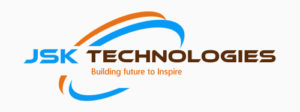Talent acquisition, benefits and compensation, as well as talent management are the three key disciplines of human resource management or HRM. From recruitment to retention and remuneration, HRM is responsible for managing employees in an organization. The company can choose to focus on all or some of these disciplines depending on factors such as size as well as the objectives of the business.
Instead of the HR department handling all aspects of HR, the department can be structured in such a way that small internal teams can focus on certain fields, for instance, training and development. Talent acquisition and talent management are essential to the development of a company’s employee base. They are both important and must exist together.
Talent: Acquisition vs. Management
In the context of talent Management vs Talent Acquisition, the word ‘talent’ is used to label a good job candidate. Its meaning, however, is imprecise, vague, and highly subjective. As a recruiter, you need to identify your hiring needs by conducting a skill gap analysis. Assess measurable skills and values instead of using talent as a qualification in your recruitment process.
Talent Acquisition
To fulfil your organization’s business needs, you need to attract and hire skilled employees. Talent acquisition is the process through which you attract and hire these professionals. Talent acquisition is in charge of:
- • Strategically sourcing potential hires from diverse backgrounds.
- • Maintaining relationships for future opportunities with past candidates.
- • Proactively building candidate pipelines to meet the company’s immediate and future business needs.
- • Building a reputable employer brand thus making sure that the company attracts the right candidates.
Talent acquisition is all about making sure that only the candidates with the right skills and have the potential to grow at your company are hired. Talent acquisition comes first, then talent management. Having the right employees gives your business a competitive advantage, make sure that you do.
Talent Management
Talent management follows talent acquisition. It’s what happens after an applicant has been interviewed and given the job. Talent management is all about developing and retaining these skilled hires. Professionals charged with talent management are charged with the following tasks:
- • Mentorship, rewarding, and the promotion of deserving employees.
- • Building hiring and succession plans.
- • The delivery of employee training programs.
- • Coaching high potential hires.
Talent management is an ongoing process. Its whatever comes after hiring the candidate. Talent management trains and develops the current crop of employees. It keeps them engaged and satisfied and prepares them for more challenging roles.
Which Is More Important Between Talent Acquisition and Talent Management?
Talent acquisition is the process that attracts and hires qualified employees. Talent management develops and helps you retain these quality hires. You can’t have one without the other. If you give too much focus on one while neglecting the other, you won’t be able to unleash the full potential of your employees. You need to invest in the development of the talent you attract and hire or you will not be able to retain it.
Additionally, you need to recruit skilled hires who are able to learn and develop if you want to create a training culture and mold successful careers. Therefore, the best HR strategy is to use both talent acquisition and talent management when hiring and developing your employee base. Companies can use digital recruitment technologies such as Digi-Me and their video job ads to spread their job openings and gain access to a greater pool of talent.
Why Is Talent Acquisition Important to A Business?
Proper talent acquisition can help your business build a workplace with skilled workers who can drive your company to success. It’s one of the most important roles of the HR department in an organization. A company with good talent acquisition can:
- • Recruit people who have the ability to grow their skills beyond the roles they are charged with.
- • Source candidates from various backgrounds and recruit a diverse set of employees.
- • Develop a candidate pipeline for future staffing needs.
- • Transform your business from an as needed recruitment basis to a proactive hiring strategy.
A business needs to be able to hire employees who have the capability to excel at their jobs for the organization to be successful. Go for people who have been top performers in similar roles and have the results to prove it. Viewing video job ads on top recruitment platforms such as Digi-Me can go a long way towards helping you pick out such individuals.
Why Is Talent Management Important to Your Business?
After your talent acquisition professionals ensure that the best available talent is sourced and hired, you don’t stop there. As a company, you need to ensure that the talent you attract is nurtured and developed to ensure continuity. Talent management helps prevent turnover and keep the employees engaged. Here’s what a successful talent management strategy can do for your company.
- • Train and develop employees to help them achieve their full potential.
- • Keep employees motivated and boost their morale.
- • Career pathing to increase employee retention rates.
- • Come up with most qualified internal candidates to fill key positions.
The talent management team schedules training programs and conducts skills gap analyses, on boards new hires, and ensures that the new employees align with the company’s overall goals and organizational structure. Talent management is a function of the organization’s HR department. Therefore, the effectiveness of the company’s talent management strategy is contingent on the strength of the HR department.
The talent management vs talent acquisition debate on which one is more important than the other is unnecessary. The HR team should use both for optimum results. That way, the organization will be able to harness the collective skills and experience of the employees and stay competitive in the market.







